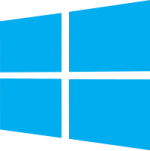It will probably come as no surprise to anyone that Microsoft topped the list in our “Who Don’t You Trust” poll. That’s the poll, launched on May 27th and closed on June 20th, in which we asked the question, “What tech company would you least trust to manage a FOSS project?” 411 people took the poll, which might be characterized by it’s lack of surprising results. In fact, we have to go to nearly the bottom of the list to find some small surprises.
Besides Microsoft, the poll offered the choices of IBM, Oracle, Novell, SAP, Google, Red Hat, Apple and “Other.” Those who selected “Other” were presented with a text box in which to type an “off the board” answer. Voters were only allowed to vote for one company and were kept from voting more than once by use of a cookie during most of the poll’s run. As with our Newbie Distro Poll, the results of which we reported two weeks ago, during the last week or so the poll was open, voting restrictions were tightened and our one-computer-one-vote rule was enforced by IP address as well as by cookie.
Even though the polling pretty much went as we expected, there were a couple of surprises.
Novell, which we expected to be near the top of the list, came in as a relatively trusted company by our readers. With an eighth place showing, only IBM scored fewer votes. We have little doubt that five years or so ago, Novell would’ve probably been right behind Microsoft as one of the least trusted companies in the FOSS world, due primarily to their dealings with Microsoft in support of their SUSE Linux distro, which many people thought was both underhanded and designed to spread FUD.
Times have changed. Novell is now owned by the holding company Attachmate and SUSE has been separated-out to become a semi-autonomous company under the Attachmate umbrella. Even before the sell to Attachmate, however, Novell might have redeemed themselves somewhat in many people’s eyes by their actions in the SCO/IBM/Linux fiasco, in which they went to the plate to successfully challenge SCO’s claims of ownership of Unix copyrights, thereby helping both IBM and Linux.
| [yop_poll id=”14″] |
The biggest surprise, however, came from how Canonical/Ubuntu fared. As this wasn’t offered as a polling choice and had to be written-in, we would have expected Ubuntu to be a relative no show in the results. Also, it’s one of the most popular GNU/Linux distros and has helped introduce many new users to free software, which led us to assume it would be regarded as a trusted friend of FOSS.
It’s probable that Canonical/Ubuntu’s unexpected negative showing comes from distrust Canonical generated by integrating commercial results for Amazon into searches conducted through the Unity Dash–a move many would expect from pre-installed Windows on a new Dell, but not from a Linux distro.
Other than those two incidences, this might be the most predictable poll we’ve ever conducted, as you will see from the results below, listed in the order of least trusted to (presumably) most trusted. Percentages are based on the nine choices listed in the poll, meaning the write-in votes will have no percentage number listed. Also, write-in votes with more than one answer have been discarded.

- Microsoft 159 votes/39%
- Apple 94/23%
- Oracle 91/22%
- Google 23/6%
- Other 12/3%
- Red Hat 11/3%
- SAP 9/2%
- Canonical/Ubuntu (“Other” write-in) 7 votes
- Novell 6/1%
- IBM 5/1%
- SCO (“Other” write-in) 1 vote
The only red flag we see here is in Canonical’s showing. Although it may appear at first glance that they scored slightly better than Red Hat, the results would be biased in Ubuntu’s favor as Red Hat was offered as a choice in the poll and Canonical/Ubuntu was not.






Strange results indeed. You owuld think the open source related offereings would not even be on this list, as it seems to me that its mostly proprietary and closed source companies that do the most damage when it comes to trust.
Under the context of “What tech company would you least trust to manage a FOSS project?” I voted Canonical as the one I trust the least (I was one who wrote that in). You don’t have to be a proprietary software house to take actions that cause people to question their trust.
They have done a few things in recent history to call their trust into question. Taking money from Banshee, the Amazon search debacle, promising to work on Wayland and then starting Mir while lying about the reasons why. There have been other actions also, but those are the ones that come immediately to mind.
They aren’t the only ones I don’t trust, but they are definitely the company I trust the least. I trust them less than I trust Microsoft.
Funny thing is, you had one choice in this poll to vote for who you would trust least. Now to all the typical Ubuntu/Canonical haters I have to ask this, do you really trust Microsoft or Apple more than Canonical? Really?
I’m just curious: were there any votes for nVidea as the “least trusted to manage” a FOSS project?
@Neil – you, along with much of the rest of people online, are far too free with the word “haters”. It has become a mindless dismissal of anyone who disagrees with your particular taste or opinion and as such is a shallow and lazy word to use.
I’ve been using Linux for over 10 years. Have used every ‘buntu since the first Beta and I can tell you that Canonical would be top of my list too.
So be a dear and find a new way to respectfully refer to people who disagree with you.
@Bernard No. No one voted for nvidia.
@Neil salparadise makes a good point. You wouldn’t cop such an attitude at your neighborhood store. Politeness opens doors. Rudeness just makes people not like you, and I’ll bet you’re a pretty likable guy, no?
@Bernard Swiss: Nvidia is a hardware company, it would make no sense in the context of this survey.
No, writing drivers for their hardware doesn’t make them a software company.
I voted for Microsoft. Though Novell certainly redeemed themselves a bit with the SCO/IBM bullsh*t, when I chose Microsoft, I was thinking to myself that I wanted to select both. But alas, I certainly distruct Microsoft more than Novell, so that is what I put. So maybe the strange Novell result is just because anyone who would consider Novell would also be considering Microsoft, and of course it is no surprise which is the bigger a$$ h@t.
As far as Ubuntu/Canonical is concerned, I don’t distrust them entirely. But I do distrust their ability to judge what is better action for the open-source community. Their recent actions have make me think that they are out for themselves. They will build upon the FOSS awesomeness, but will only use that as something to launch themselves further forward, attempting to leave the rest behind, and certainly not contributing back to that which they have built themselves from.
Anyway, just my half a cent…
Neil: I’d expect the Canonical votes to be ‘protest votes’ from Ubuntu users (or former Ubuntu users). I doubt any ‘haters’ would waste their time with write-in votes in a minor poll on a small website (no offence, Christine!)
I didn’t see the poll in time to participate (what I catch on the site is from the LXer feed, and I’ve recently been doing some upgrades so some articles fell off several of my active feeds), but to me…
MS and Apple are not trustworthy, but they’re wolves in wolves clothing, so to speak, so no big deal. I don’t trust them but at least they’re a known quantity, so there’s no danger to me and little direct danger to my interests from them.
Of the entries listed, I’d have probably voted Oracle, because of what it has done to so many of the FLOSS projects it inherited from Sun.
But if Ubuntu/Canonical had been listed, given the limitation of choosing only one, it would have been a tough choice, not only due to the Amazon search and potential privacy leak, but also due to the whole going-their-own-way thing with unity, and now with mir, as well as the whole copyright assignment for contributers thing, etc. In a way they’ve taken up the Sun mantle as having the strangest corporate love/hate relationship with the FLOSS, and as with Sun, that’s not a particularly stable situation. Ultimately, they’re likely to tip toward mostly bad, as what remained of Sun did when it was gobbled by Oracle, and as SCO did many years ago, after having its time (as Caldera) in the FLOSS-friendly limelight.
So while Oracle would be my current choice, definitely of those listed, it too is tipping toward the wolf in wolves clothing category, and unfortunately, it seems Ubuntu/Canonical is ready to replace it at the top of my most risk to FLOSS and thus needs most watching, list.
The others… SAP I honestly don’t know enough about to evaluate, Google is risky simply because they’re such a big player, but other than the obiquitous privacy issues (not just the current NSA data harvesting, but doubleclick and the whole personal profiling thing that is the wellspring of Google’s cash), they seem to play /reasonably/ well with FLOSS and put a reasonable amount of that cash towards FLOSS projects. Red Hat is corporate and /could/ go bad, but has an EXTREMELY consistent and impressive record of staying on the good-guy’s team, and until there’s the slightest evidence of that changing that’s a purely latent worry. Novell is a much smaller player now than they used to be, so the risk is lower to the FLOSS system overall, and other than the MS partnership a few years ago (which even then I couldn’t argue too much with, given the white knight they were being at the same time, on the SCO front), they’ve been decent for a corporate player and the Attachemate thing seems to be continuing that.
IBM… both does a lot of FLOSS sponsorship AND is a HEAVY backer of perhaps the #1 FLOSS legal danger ATM, software patents, where year after year, they are the #1 filer in the US. If they were to throw their full weight including patents behind FLOSS and say, declare that no FLOSS project (or even just strong copyleft patent protection licenses, thus leaving Apple-style and even Google-style closed source robbing of the ecosystem off limits) had anything to fear from them on any of their patents, and/or declare pure defensive use thereof, it would be a **HUGE** deal for both FLOSS and the potentially quick demise of software patents. However, being the corporation they are, getting the money they do from patents, that’s unlikely. Similarly unlikely is them turning on a dime to strongly oppose FLOSS with what would effectively be a patent nuclear weapon, tho if they did, that would be disasterous. So while they’d be a huge game changer either way were they to move definitively in one direction or another, they’re a pretty well known quantity that’s relatively neutral overall and has been for some years now, so I agree with their ranking near the bottom of the distrust list.
But were this a relative poll where one were given say 100 points to distribute among the participants in ordered to rank their relative risk and/or distrust level, they’d all get some points. I don’t perfectly trust any of them, tho I certainly distrust some far more than others.
Duncan
ooh someone is pretending to be me, is that you Dieter? <3
@Adam No offense taken. Alexa agrees with you. 🙂
@Andrew It could be Andrew. Too, it could be someone who’s not pretending to be you at all. Someone else named Andrew, perhaps? Could happen. 😉
@Christine I wasn’t really serious there. 🙂
Given Red Hat’s history–they’ve GPL’d just about everything they’ve ever written or bought–I’m amazed that anybody actually voted for them as “least trusted” with a FOSS project. Consider what they did with QEMU/KVM (they’d bought Qumarnet), the Netscape Server suite (e. g. 389 Directory Server), Anaconda, etc. They’re one of the leading contributors to kernel development, GNOME development (no, I don’t care for GNOME 3, but it is a popular FOSS desktop and part of the GNU project), and more. Red Hat’s distro is the only Enterprise distro which actually has an accurate community clone–CentOS. That’s saying a lot right there. On top of all that, they’re the only ones to have gotten a GNU/Linux distro officially certified for Common Criteria-compliant environments, all the way up to EAL-4. That costs a lot of money and requires a lot of effort, and THEY DID IT.
If this “distrust” of RH is because it makes money from all this–if that’s your reason–then those of you who distrust them for that don’t really understand what you’re talking about. Some people at RH are arrogant SOB’s, sure. But the company has done, and continues to do, a great deal to support FOSS proliferation. They do that by MAKING MONEY, and as RMS himself has said, that’s great. Given their track record, RH is among the *first* organizations I’d trust with a FOSS project.
–SYG
@Sum Yung Gai I’m with you 100% on that. I’ve often said there’s been absolutely no better open source player, as far as I can tell, than Red Hat.
I would select IBM, not so much as a corrupt company, but more as a grossly *incompetent* one. I wouldn’t trust them to run a FLOSS project because they’d screw it up.
I know I’m very late, but simply wanted to +1 on Duncan’s idea of a relative poll.
Not even distributing points, maybe simply sorting your choices from “least trusted” to “most trusted” would be fine.
@Chris: could you consider it for some future poll? Just a suggestion, If not possible/feasible, that’s OK too.
@Ricardo Quite a few people have made that suggestion, and we’d like to do it. Something like the on a scale of one to ten, how would you rate the trustworthiness of such and such. We see these type polls a lot, usually when a website has hired a private polling company to gather information about users experience on the site.
The problem is, we don’t have any way to do that, right now, without using some off site polling service, and we don’t want to do that. Hopefully in the near future we’ll have the ability to do all sorts of things with polls that we can’t do at present, but at this time that’s not within our reach.
@Christine: that’s OK, I was thinking there might be some WP plugin to do it easily but I don’t know any.
Using an external service might be easier but you’d probably loose the kind of integration your current polls have.
Anyway, if I happen to find a good poll plugin for WP I’ll let you know 🙂